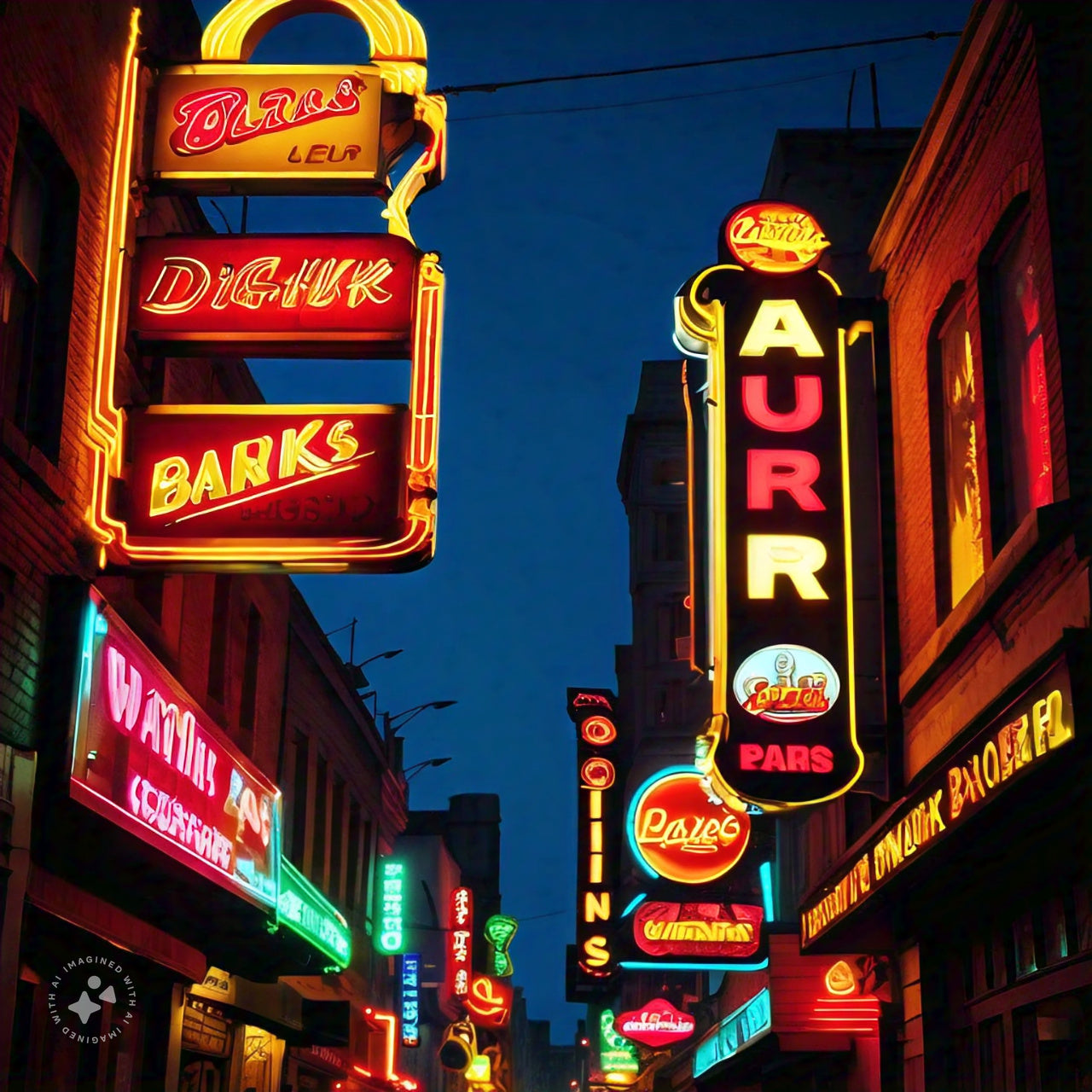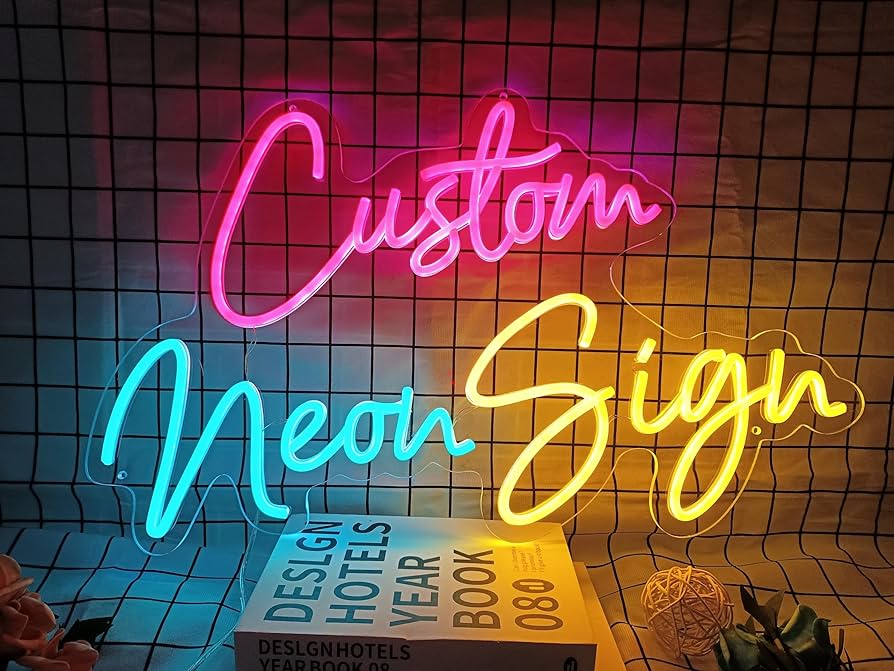In today’s highly visual world, signs play an indispensable role in guiding, informing, and shaping our environments. From the signs we see on the roads that direct traffic to the intricate designs that beckon us into our favorite coffee shop, signage is everywhere. But beyond the standard, mass-produced signs, there exists a realm of creativity and personalization: custom signs. These custom-designed pieces go beyond mere function—they are expressions of identity, tools for communication, and elements of aesthetic appeal that enrich public and private spaces.
In this blog post, we’ll dive into the fascinating world of custom signs, exploring how they are designed, the impact they have on businesses and personal spaces, and how you can create a custom sign that perfectly reflects your vision.
The Evolution of Signage: From Necessity to Art
Signs have been used for centuries to convey information and direct people. From ancient Roman milestones to the iconic signs of the Wild West, the basic function of signage has always been to inform. However, as society progressed, so did the need for more than just utilitarian markers. The advent of commercial businesses in the 19th century brought a demand for signage that could attract attention and entice customers, transforming signs into marketing tools.
With the rise of custom signs, this evolution has reached a new height. No longer limited to simple wooden or metal boards, signs today come in countless materials, shapes, sizes, and designs. They can be tailored to match a business's brand, create a statement piece for a home, or convey a personal message. Thanks to modern technology like laser cutting, digital printing, and LED illumination, the possibilities for custom signs are endless.
Why Choose Custom Signs?

-
Personalization and Branding
The most obvious reason for opting for custom signs is the ability to personalize them. Whether for a business or a home, custom signs allow you to reflect your identity or brand. For businesses, a custom sign isn't just a marker—it's often the first interaction a customer has with the company. A well-designed custom sign that aligns with your brand's values and aesthetic can create a lasting impression.
For individuals, custom signs offer the opportunity to express personality or commemorate something meaningful. Whether it's a custom-made "Welcome" sign for your front porch or a personalized nameplate for your office desk, the ability to make a sign your own is empowering and adds a unique touch to your surroundings.
-
Flexibility in Design and Materials
With custom signs, the choice of materials is vast. Whether you're aiming for a rustic wooden look, a sleek modern metallic finish, or something eco-friendly made from recycled materials, the options are at your fingertips. You can choose colors, fonts, textures, and even lighting effects to create a sign that speaks to your vision.
This flexibility is crucial for businesses looking to stand out in crowded markets. For example, a boutique shop may want a sign that reflects its artisanal products, using a mix of wood and brass for a handcrafted feel, while a high-tech company might prefer a polished, illuminated acrylic sign that reflects innovation.
-
Enhancing Curb Appeal and Visibility
A custom sign can do more than simply provide information. It can enhance the aesthetics of a space. For businesses, curb appeal is a major factor in drawing in foot traffic. A sign that is eye-catching, unique, and aligned with the business’s brand can make a store or office stand out on a busy street.
Similarly, custom signs for homes, such as address plaques or welcome signs, add a personal and decorative touch. They not only enhance the visual appeal but can also make a space feel more inviting and personalized.
-
Creativity and Artistry
Custom signs are often seen as a form of art. Designers and sign makers use their creativity to craft pieces that are more than just functional—they are works of art that contribute to the visual landscape. Some businesses or homeowners even collaborate with artists or graphic designers to create bespoke signs that are one-of-a-kind.
The rise of DIY culture has also brought an increase in people creating their own custom signs. Whether through hand-painted designs, laser-cut wood, or vinyl decals, people are embracing the creative potential of custom signage to express their artistic side.
Designing a Custom Sign: Where to Start
Creating a custom sign might seem daunting at first, but with the right approach, it can be a fun and fulfilling process. Here are some key steps to guide you:
-
Determine the Purpose and Placement
The first step in designing a custom sign is to determine its purpose and where it will be placed. Is it for a business or personal use? Will it be indoors or outdoors? The answers to these questions will influence key design decisions, such as the size, material, and level of durability required.
For instance, outdoor signs need to withstand weather conditions, so materials like metal, treated wood, or weather-resistant vinyl are great choices. Indoor signs, on the other hand, can be more delicate and intricate since they won’t face the elements.
-
Define the Message
What message do you want your sign to convey? Whether it’s a company’s name, a motivational quote, or something as simple as "Welcome," the text on your sign is central to its effectiveness. Be clear and concise with your message, as overly complicated text can be difficult to read from a distance.
The font you choose is also important. Serif fonts, like Times New Roman, often give a classic or traditional feel, while sans-serif fonts, like Helvetica, provide a modern and clean look. Script fonts add elegance but can sometimes be hard to read, so use them sparingly.
-
Select the Right Materials and Colors
The material you choose for your custom sign plays a crucial role in its look, durability, and cost. Wood offers a warm, rustic charm, while metal exudes strength and modernity. Acrylic can be sleek and sophisticated, while neon or LED signs are perfect for those who want to grab attention, especially at night.
When it comes to color, think about the environment in which the sign will be placed. A sign that blends into its surroundings won’t be effective, so choose colors that create contrast and are easy to see. If your sign is for a business, make sure the colors align with your brand.
-
Consider Lighting
For businesses, a well-lit sign is essential, especially if your location is open at night. LED lights, neon lighting, and backlit signs can add both functionality and style. Even for home decor, custom neon signs have become trendy, adding a fun and modern twist to interior design.
-
Work with a Professional or DIY
If you’re creating a custom sign for a business or a high-visibility area, you may want to work with a professional sign maker or graphic designer. They can guide you through the process and ensure that your sign meets all technical and aesthetic requirements.
For smaller or personal projects, there are plenty of tools and materials available for DIY custom signs. Vinyl cutters, hand-painting kits, or pre-cut wooden boards can all be used to craft your own creation.
The Impact of Custom Signs on Businesses
For businesses, signage is not just a practical tool; it’s a crucial part of marketing and branding. A custom sign can set the tone for a business, communicate its values, and attract customers. In fact, studies have shown that well-designed signage can increase foot traffic and even improve sales.
-
Brand Recognition
A custom sign that reflects a business’s branding, including its logo, colors, and typography, reinforces brand recognition. Consistency in signage across storefronts, packaging, and advertising helps build a cohesive identity that customers will remember.
-
Curb Appeal
A beautiful, well-maintained sign can do wonders for a business’s curb appeal. It signals to potential customers that the business cares about its appearance and attention to detail. On the other hand, a poorly designed or worn-out sign can deter customers and hurt a business’s reputation.
-
Setting Expectations
The style of your sign can also set customer expectations. A high-end jewelry store might have a sleek, minimalist sign made of metal or marble, while a playful toy shop could opt for colorful, hand-painted wooden signage. The design choices tell potential customers what to expect before they even step inside.
Custom Signs for Personal Use
Custom signs aren’t just for businesses—they’re also popular for personal spaces and events. From wedding signs that guide guests to personalized family name plaques, custom signage adds a unique touch to any occasion or setting.
- Home Decor: Custom signs can be used to add character to your home, from a welcoming sign at the front door to a personalized quote in the living room.
- Events: For weddings, parties, and other special events, custom signs can guide guests, mark seating areas, or serve as decorative elements that tie into the event’s theme.
Conclusion: Making a Statement with Custom Signs
Whether for a business, personal use, or a special event, custom signs are a powerful way to communicate, decorate, and enhance a space. With limitless design options, they allow you to express creativity and convey a message that’s uniquely yours. From the materials and colors to the fonts and lighting, every element of a custom sign can be tailored to fit your vision and needs. So, whether you're looking to attract customers or add a personal touch to your home, a custom sign is a statement worth making.




